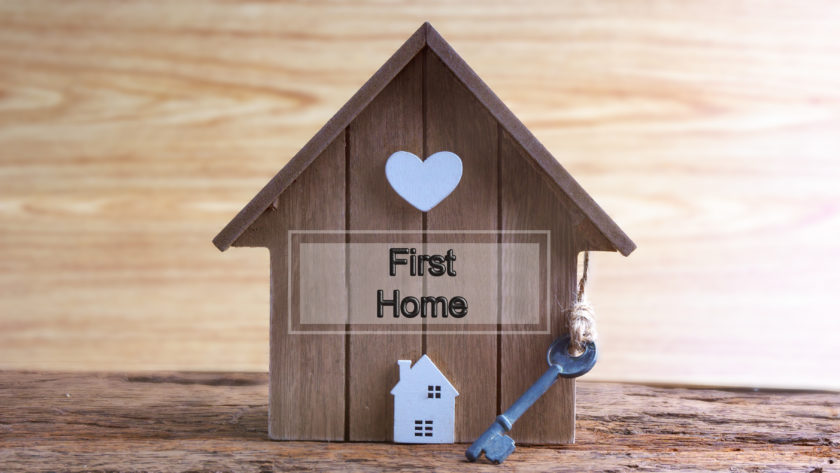Dreaming of owning your first home? You’re not alone. The journey to homeownership is filled with excitement, challenges, and plenty of decisions. It’s one of the biggest investments you’ll ever make, so it’s essential to be well-prepared. Whether you’re picturing a cozy cottage or a modern apartment in the heart of the city, understanding the ins and outs of purchasing your dream house can turn that vision into reality.
From assessing your budget to navigating through different types of homes available on the market, each step brings you closer to unlocking that front door for the first time. This guide offers clarity amid all the confusion surrounding real estate processes and financial commitments. You’ll feel more confident as we cover everything from choosing the right location to negotiating prices.
So grab a cup of coffee or tea, settle in comfortably—your journey toward homeownership starts here!
The Importance of Homeownership
Homeownership is more than just a roof over your head; it’s about stability and security. Owning a home provides a sense of belonging in a community, allowing you to create lasting memories with family and friends.
Financially, it offers numerous benefits. A mortgage can be an excellent long-term investment that builds equity over time. As property values increase, so does the potential for profit down the line.
Additionally, homeowners often enjoy tax advantages not available to renters. Deductions on mortgage interest and property taxes can lead to significant savings each year.
Beyond finance, there’s personal pride in ownership. You have the freedom to customize your space—paint those walls any color or landscape your garden without restrictions from landlords.
In essence, owning a home is about crafting your future while enjoying both emotional and financial rewards along the way.
Assessing Your Budget
Assessing your budget is a crucial step before diving into the homebuying process. Start by evaluating your finances. Know what you can afford without stretching yourself too thin.
Calculate all income sources and subtract monthly expenses. This will give you a clearer picture of available funds for mortgage payments, property taxes, and insurance. Consider future costs as well—home maintenance can catch first-time buyers off guard.
Don’t forget to account for additional fees such as closing costs and moving expenses. These often overlooked charges can add up quickly.
A good rule of thumb is to keep housing expenses around 30% of your gross income. This balance ensures you’re not sacrificing other financial goals in pursuit of homeownership.
It’s wise to get pre-approved for a mortgage early on. It provides insight into how much lenders are willing to offer based on your financial profile.
Choosing the Right Location
Choosing the right location is crucial in your home-buying journey. It can make or break your experience as a homeowner.
Consider proximity to work, schools, and essential amenities. A short commute saves time and boosts quality of life. If you have kids, good schools nearby are often non-negotiable.
Explore neighborhoods during different times of the day. This gives insight into noise levels and traffic patterns. You want to feel comfortable at all hours.

Community vibe matters too. Are there parks for leisurely strolls? Cafes for weekend brunches? Engaging with local businesses fosters a sense of belonging.
Research future developments in the area. Upcoming infrastructure projects can increase property values but may also bring inconveniences during construction phases. Balance these factors carefully to choose wisely on this pivotal decision!
Types of Homes to Consider
When diving into the world of homeownership, it’s essential to know your options. Each type of home offers unique benefits and challenges.
Single-family homes are a classic choice. They offer privacy and space but often come with higher maintenance responsibilities.
Townhouses provide a middle ground, combining private living with community amenities. They’re ideal for those who appreciate a vibrant neighborhood without sacrificing too much personal space.
Condos can be perfect for first-time buyers seeking convenience. Many come with built-in facilities like pools or gyms, reducing upkeep time.
If you’re looking for something more unconventional, consider tiny homes or modular houses. These eco-friendly alternatives promote minimalism while maximizing efficiency.
Fixer-uppers can be an exciting venture for DIY enthusiasts wanting to create their dream environment from scratch. Choosing the right type is crucial in aligning your lifestyle and budget with your aspirations.
The Homebuying Process: From Pre-Approval to Closing
Navigating the homebuying process can feel overwhelming, but breaking it down helps. Start with pre-approval. This step involves a lender reviewing your financial situation to determine how much you can borrow.
Once you have that pre-approval letter in hand, it’s time to start house hunting. Make a list of must-haves and nice-to-haves as you explore different neighborhoods and properties.
After finding your dream home, make an offer. Your real estate agent will guide you through this negotiation phase, ensuring your interests are represented.
If your offer is accepted, you’ll enter the closing process. This includes inspections, appraisals, and finalizing mortgage paperwork. Patience is key here; each step takes time but brings you closer to ownership.
As everything aligns towards closing day, prepare for one last review of documents before signing on the dotted line—then celebrate!
Negotiating and Finalizing the Purchase Price
Negotiating the purchase price is a crucial step in home buying. It’s your chance to ensure you’re getting the best deal for your dream house.
Start by doing thorough research on similar properties in the area. Understanding market trends gives you leverage. Knowing what others have paid can help frame your offers.
When making an offer, be strategic. Don’t lowball; it might offend the seller. Instead, present a fair amount based on comparable sales and condition of the home.
Be prepared for counteroffers. This back-and-forth can feel daunting but stay patient and open-minded during negotiations.
Once both parties agree, it’s time to finalize everything legally through contracts and disclosures. Ensure all agreed-upon terms are documented clearly to avoid misunderstandings later on.
Take a moment to review each part of the agreement carefully before signing anything—this protects your interests as well!

Maintaining and Improving Your New Home
Owning a home is just the beginning of an exciting journey. Once you get the keys, maintaining and improving your space will help build equity and enhance your living experience.
Start with a regular maintenance schedule. Small tasks like changing air filters or checking smoke detectors can prevent larger issues down the line. You’d be surprised how much these little things matter.
Consider energy efficiency upgrades. Installing LED lighting or smart thermostats not only reduces bills but also creates a more sustainable environment.
Don’t forget about curb appeal. A fresh coat of paint on your front door or new landscaping can elevate your home’s exterior significantly.
Embrace DIY projects! Whether it’s building shelves or painting walls, engaging in improvement efforts adds personal touches that make your house truly feel like home. Each update reflects your style and vision for what you want to create in this special place.
Frequently Asked Questions
Homeownership is an exciting journey filled with numerous questions and considerations. Many first-time buyers often find themselves seeking guidance along the way. Here are some frequently asked questions that can help clarify your path to purchasing your dream house.
What is the best time to buy a home?
The ideal time varies for each buyer, but generally, spring and summer offer more inventory and options. However, markets fluctuate, so it’s essential to stay informed about local conditions throughout the year.
How much should I save for a down payment?
Traditionally, 20% of the home’s price is ideal to avoid private mortgage insurance (PMI). Yet many programs allow as little as 3% or even no money down in certain circumstances. Explore various options that fit your financial situation.
What types of loans are available?
There are several loan types: conventional loans, FHA loans for low-to-moderate income buyers, VA loans for veterans and active military members, and USDA loans for rural properties. Researching these options can lead you toward favorable terms.
Should I hire a real estate agent?
Having a professional by your side can simplify complex processes like negotiations and paperwork. A knowledgeable agent understands market trends and helps you find homes that meet your needs while maximizing value.
How long does the homebuying process take?
From searching listings to closing day can vary widely—typically between one month to six months or more depending on individual circumstances such as financing readiness or personal preferences in finding just the right property.
Remember that buying a home is not just about acquiring property; it’s about creating a space where memories will unfold over time. It’s worth taking every step seriously while enjoying this significant life milestone.











